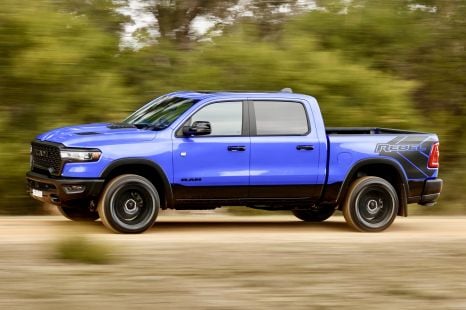

Max Davies
2026 Ram 1500 Rebel review
5 Days Ago
I’m tempted to say the GR86 is the car the original 86 should have been from the outset, such is the improvement on a holistic level.
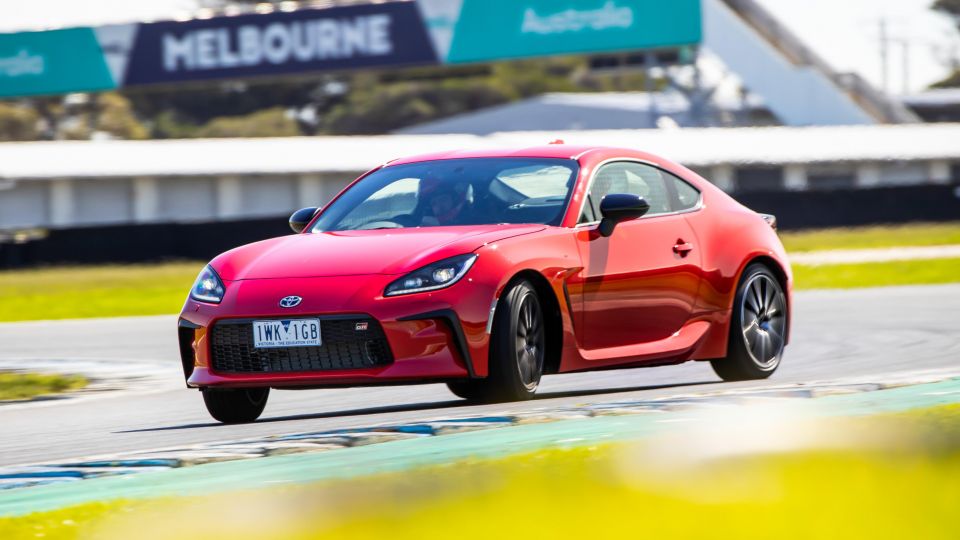
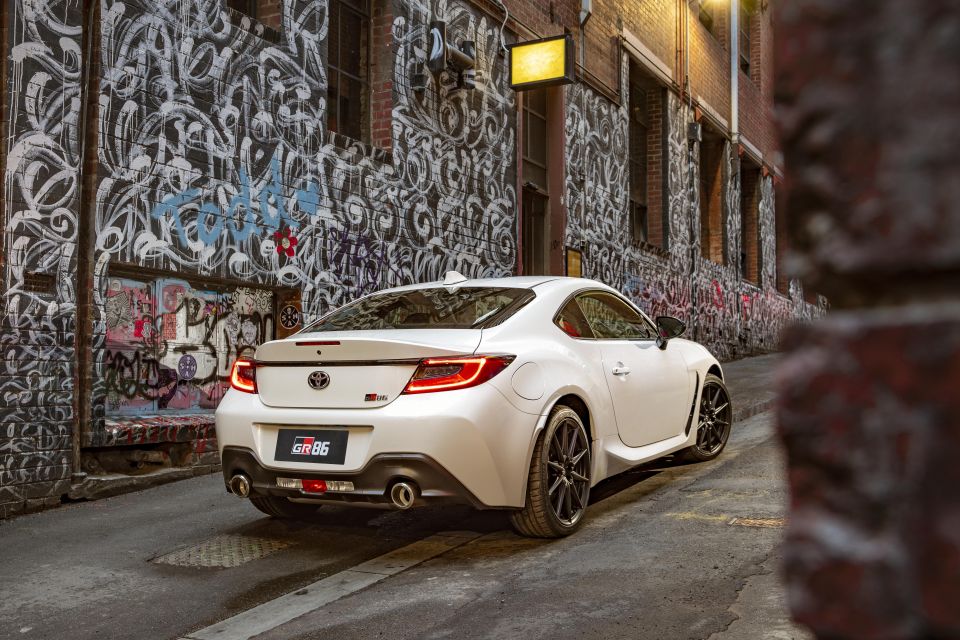

Quickly see how this car stacks up against its competition. Select any benchmark to see more details.
Where expert car reviews meet expert car buying – CarExpert gives you trusted advice, personalised service and real savings on your next new car.
The second-generation Toyota GR86 has finally arrived, and it’s not the budget sports car it once was. Not even close.
Where the headline-grabbing price of $29,990, the original 86 was designed to put affordability back into sports cars, 10 years on I’d argue the same could be said of the new version – even with the significant price bump.
While fanboys and enthusiasts may have been hooked on the purity and unapologetic simplicity of the bare-bones Toyota 86, the new GR86 smashes it on every level.
Maybe I just didn’t get the original formula, or more likely, my internal benchmark for an affordable front-engine, rear-drive sports car had been set way too high all those decades years ago when I owned a Datsun 240Z.
The Z was a well-engineered car offering outstanding straight-six performance, but at a price most people with a job could afford, or at least aspire to own – the poor man’s E-Type it was often referred to.

Front-engined, rear-drive sports cars with good looks have always been in short supply apart from the Mazda MX-5, so I was still keen as mustard to get behind the wheel of the original 86, given the universal hype.
However, the overall experience left me underwhelmed. It was too slow, with rubbish tyres and a decidedly lacklustre exhaust note from an underpowered engine that did nothing to bring out the boy racer in me.
I did like the way it looked, and the price was right. In the end it mattered little what I thought because the 86 turned out to be a serious success story, with nearly 22,000 examples sold in the last 10 years, despite its shortcomings.
The GR86 is a different proposition. At first glance it looks similar to the Series 1, but up close it’s a far more resolved design with a lot more going on.
If the Series 2 has lost any of that boy-racer image of the original, it can only be a good thing. It’s likely to broaden the appeal of this genuine sports car even further.
The GR86 is longer and lower than the 86 (with a slightly longer wheelbase), but now with the trademark Gazoo Racing black mesh grille, flanked by functional intakes that channel air for less front-end disturbance.
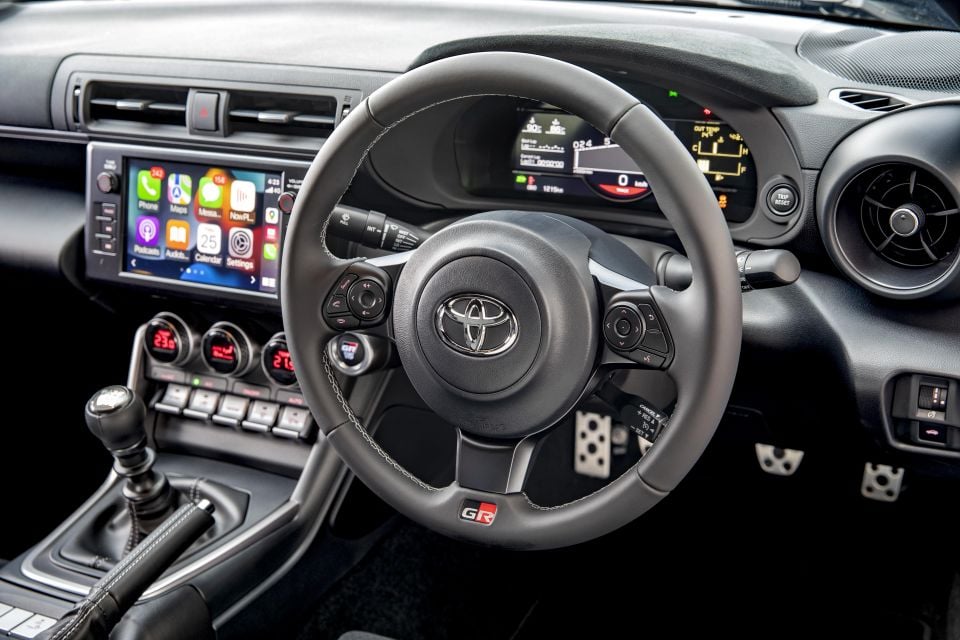
It’s all in the interest of improving aerodynamics, as well as enhancing airflow to the radiator, rather than in the name of fashion. Look closely and you’ll notice a series of steps on the front splitter, inclined at a precise 45 degrees to help with handling stability. The GR86 also gets a flat underbody plate up front, again to streamline the airflow.
Even the headlight assembly has been streamlined and now offers more powerful lighting with adaptive LEDs all round, with active steering on the higher-spec GTS versions.
It seems no part has been left untouched. Front and rear guards are visually beefier, while rocker mouldings kick up at the rear to reduce air flow disturbance at the wheels.
The door mirrors are larger for better visibility but they’re also more aerodynamic than those on the original 86, something I noticed while simply pulling out of a rest area on the road drive.
Both GR86 grades also get new wheel designs (17s for GT, 18s for GTS), and there are aero fins on the rear guards that are said to aid dynamic stability.
Capping it off are the dual integrated exhaust tips positioned inside the rear bumper/diffuser. All-in-all it’s a far more mature look than the original 86, and all the better for it.
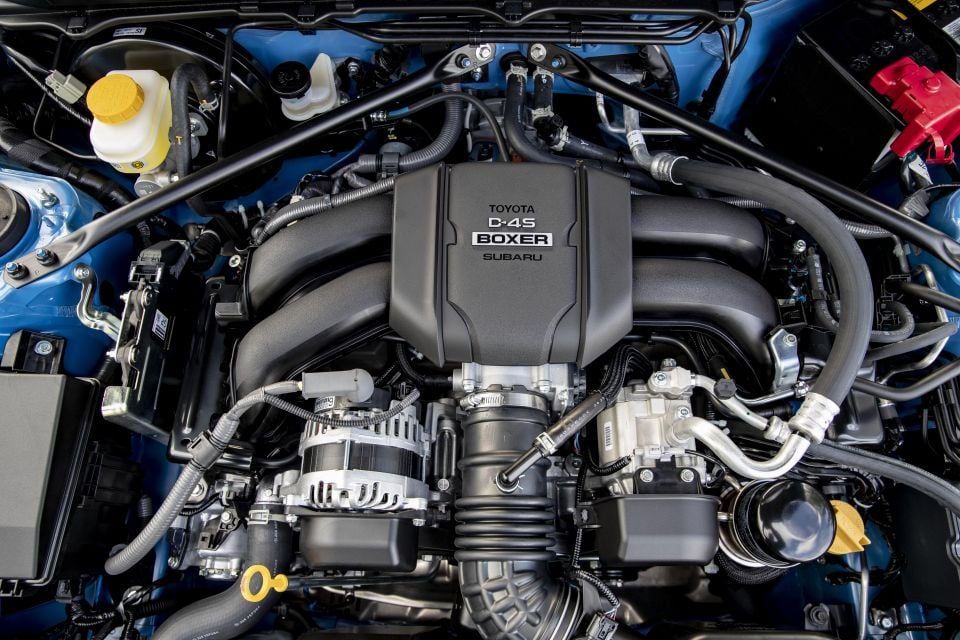
Toyota has also addressed the biggest drawback of the original model: a total lack of grunt from its naturally aspirated engine.
The entire car has been made far more stiff with 60 per cent more lateral rigidity up front, while at the rear, the GR86 benefits from 50 per cent more torsional stiffness.
Additionally, lightweight measures have been applied in all critical areas around the car. The bonnet, roof and front guards are made from aluminium, but additional weight-saving strategies have been employed in the engine and seat, as well as in other minor components.
Upgrades include revised damper and spring rates along with aluminium engine mount brackets and rebound springs. Even the steering gearbox mount has been made stiffer.
The brakes have been beefed up in the new GR86, which this time round features larger ventilated discs measuring 294mm up front and 290mm at the rear.
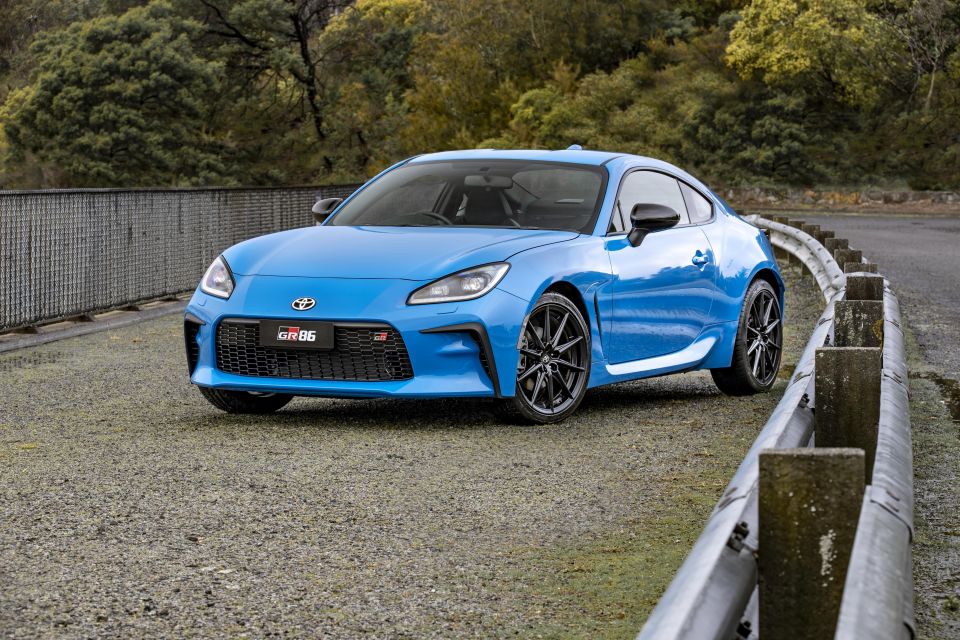
First up, it’s not the bargain-priced sports car it once was.
The range kicks off with the base GR86 GT at $43,240 before on-road costs regardless of which transmission you choose. That makes the cheapest manual 86 a wallet-lightening $2950 more expensive than the base Subaru BRZ manual, which costs $40,290.
The buying equation changes with the automatic however, because Subaru charges a premium. The base BRZ automatic ($44,090) is $850 more expensive than the 86 GT automatic – but unlike the Toyota it features blind-spot monitoring and rear cross-traffic alert.
Priced from $45,390 before on-roads, the range-topping GR86 GTS is $3800 more expensive than the equivalent BRZ with a manual ($41,590), but is priced identically with an automatic transmission.
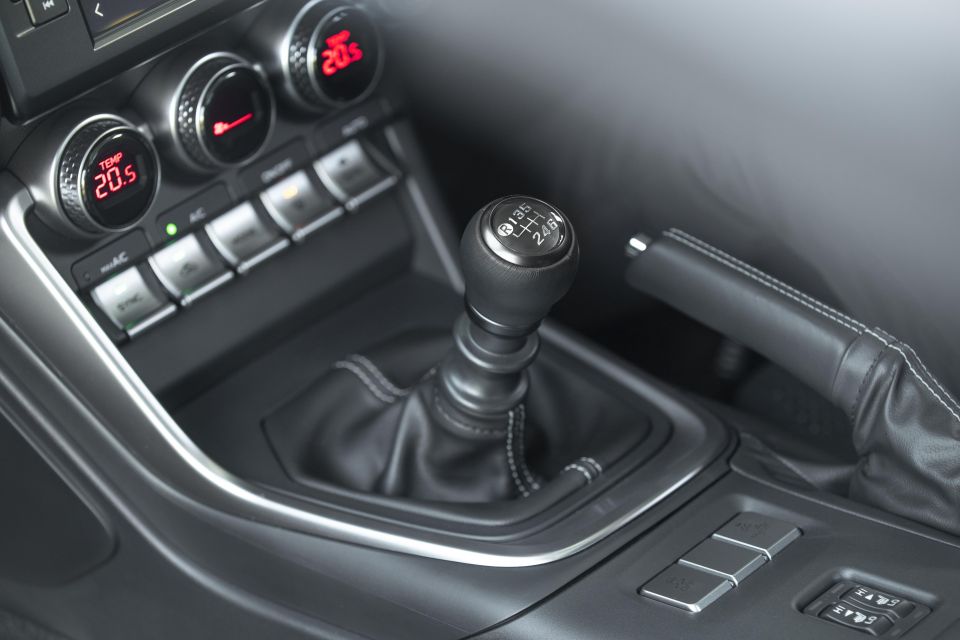
The BRZ and GR86 are built at the same factory by Fuji Heavy Industries, which also supplies the engine, and are almost identical mechanically, except for specific tuning by Toyota’s GR engineers.
In the meantime, Toyota Australia has secured 1100 examples of the new GR86 coupe over the first 12 months of sales – a number which we highly doubt will come close to matching demand, despite the price rise.
Of course, it’s a different kind of proposition, but the Mazda MX-5 is still a front-engine, rear-drive sports car priced from $37,990 for the base manual, and climbing as high as $51,700 for the MX-5 GT RS Manual.
Buyers have the choice between a six-speed torque-converter automatic, or a six-speed manual gearbox – there’s no additional charge for the automatic.
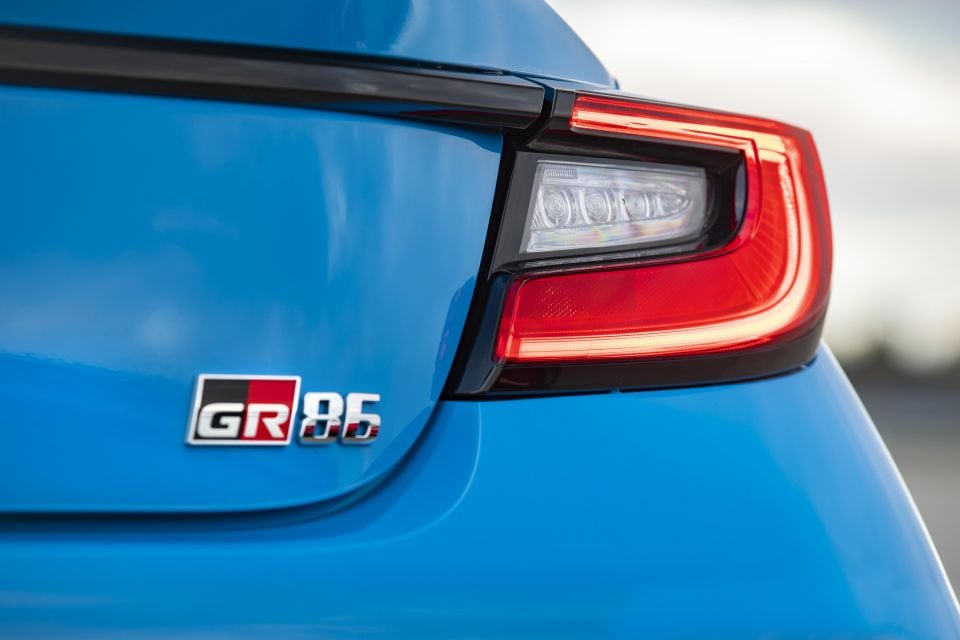
2023 Toyota GR86 pricing:
All prices exclude on-road costs
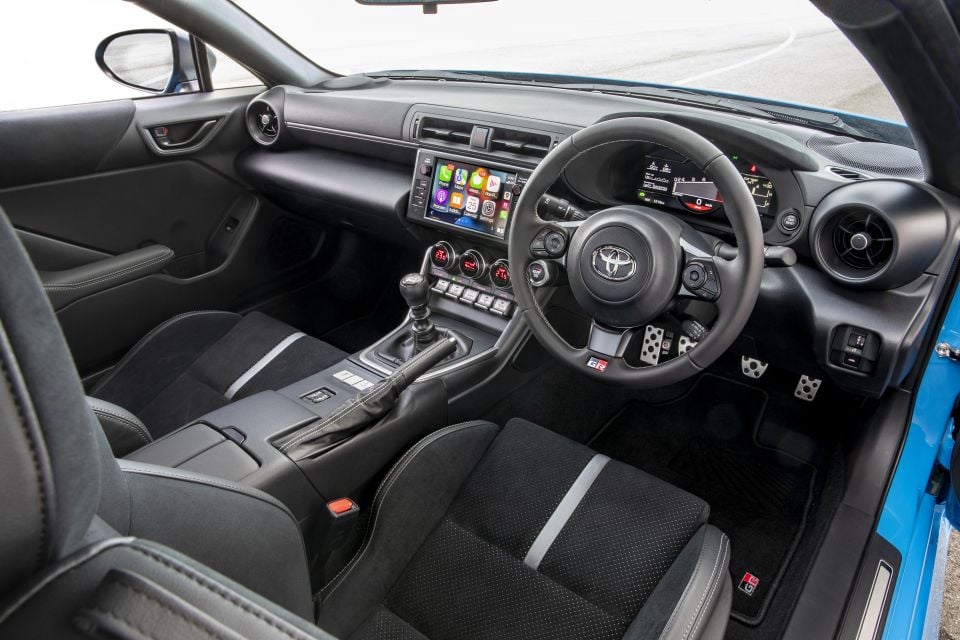
Buy your new car without the stress. It's fast, simple and completely free.

Great service from Travis and team, second time I have used this business would not hesitate to recommend them to anyone
Craig C.
Purchased a Ford Ranger in Sunshine Coast, QLD
CarExpert helped Craig save $7,224 on his Ford Ranger, now let us save you on your next new car.
Get your BEST pricePrevious 86 owners will likely feel right at home in the new-generation GR86, save for new screens and a slightly cleaner ‘horizontal’ design across the dashboard.
No question it’s a snug fit in the cockpit, which largely keeps the same dimensions as the outgoing model. Being to seat four people in the GR86 (and BRZ) is a big plus for those of us with kids (or dogs), even if it is a tight squeeze back there.
Standard kit for 2023 is an all-new 8.0-inch touchscreen infotainment display replacing the old 7.0-inch unit, offering Apple CarPlay, Android Auto and DAB+ digital radio.
It’s quick to process inputs and there’s a few knobs and dials for easy access to volume and station tuning to make life easier on the run.
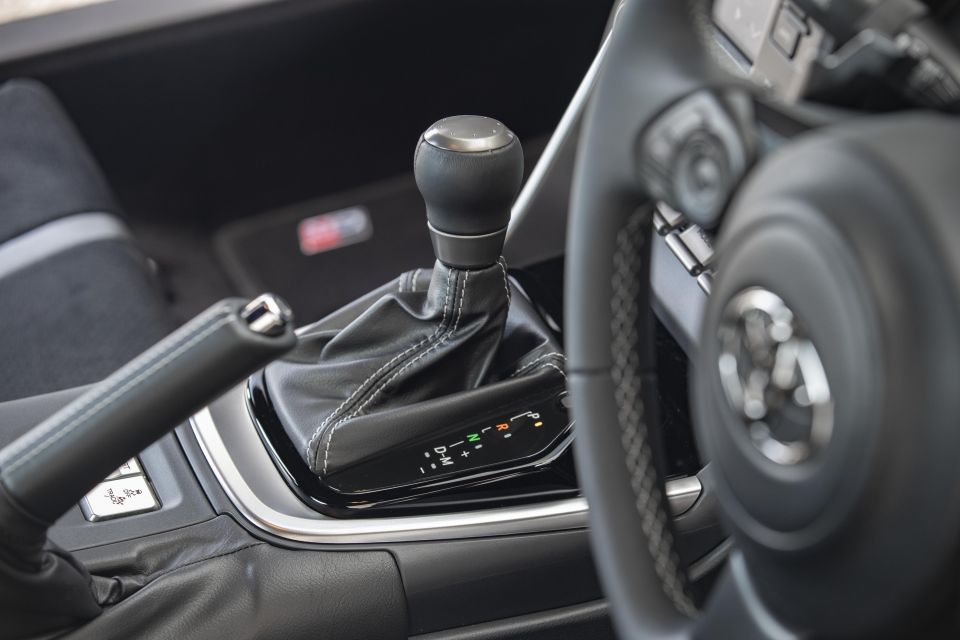
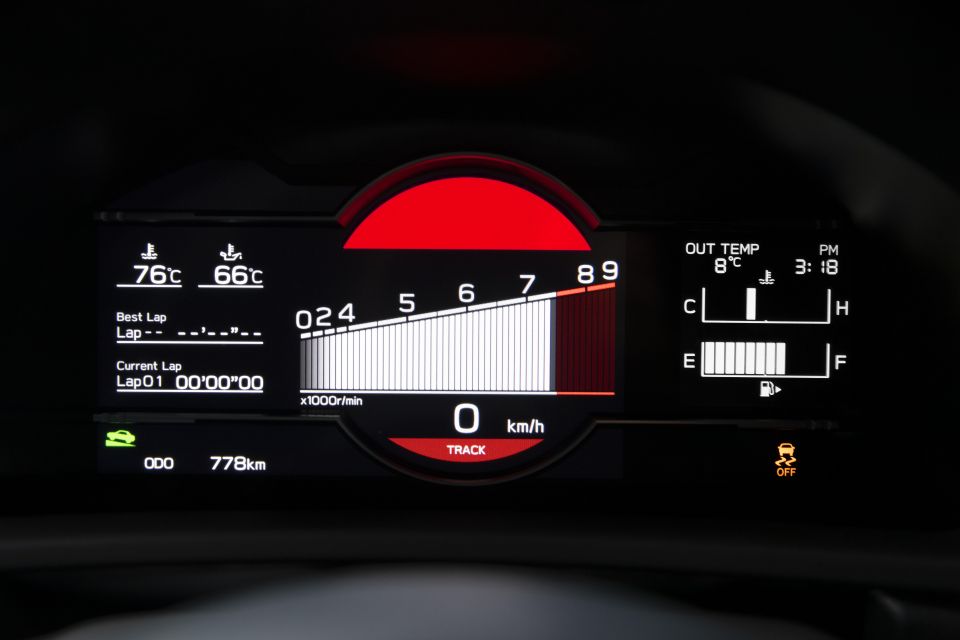
It’s also paired with a 7.0-inch digital instrument gauge which is reconfigurable with Normal, Sport and Track drive modes, though deep colour reproduction isn’t one of its strong points.
Thankfully, the dual-zone climate control uses three large dials incorporating digital readouts, with a bank of rocker-style switches below controlling various other AC functions.
The low-slung driving position is superb, as are the properly bolstered seats that offer a lower hip point for reduced lateral movement and a lower centre of gravity. They’re now lighter by 1.5kg, but more comfortable thanks to new seat springs.
Toyota has shrunk the leather-wrapped steering wheel diameter slightly, with both tilt and reach adjustability.
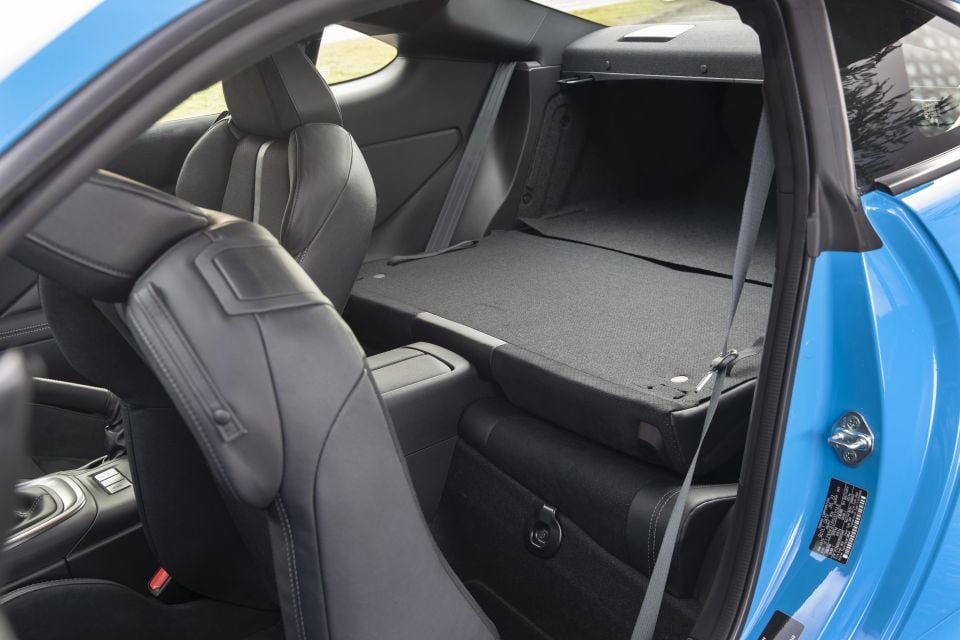
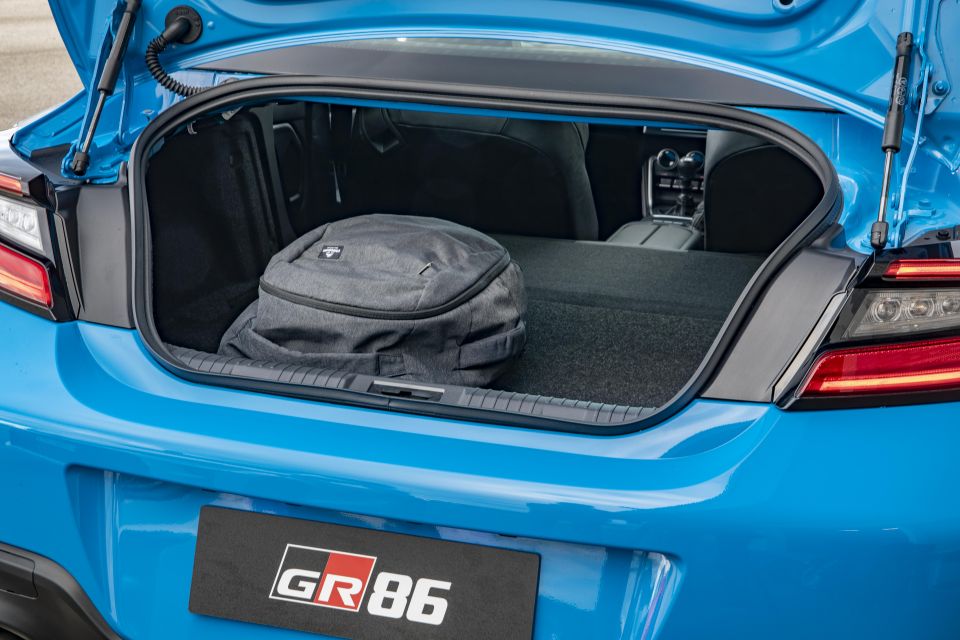
Generally, we preferred the more luxurious Ultrasuede/leather accented upholstery in the GTS for its extra body grip, but there’s not much between it and the regular fabric in the GT as far as comfort goes.
Even the rear seats gain more cushioning as well as better ingress and egress thanks to more thoughtful ergonomics via a new shoulder-mounted seat folding lever.
Storage wise, there’s a new double-door centre console box with two USB ports and two cupholders, while glovebox capacity has been increased by 25 per cent.
While boot space is minimal at 237 litres, Toyota’s press kit proudly boasts there’s enough space to haul four spare tyres in the luggage area with the rear seats folded – track-day warriors will no doubt be impressed.

At the heart of the new GR86 is a larger 2.4-litre naturally-aspirated horizontally-opposed four-cylinder petrol engine making 174kW of power at 7000rpm, and 250Nm of torque from 3700rpm – an improvement of 22kW and 38Nm over the 2.0-litre unit it replaces.
The extra grunt made by the larger engine delivers noticeably more performance, especially with the manual, which can scoot from 0-100km/h in just 6.3 seconds (down from 7.6s). The GR86 auto needs 6.8 seconds to do the same sprint.
Only the cylinder block and cylinder heads have been carried over from the original 2.0-litre unit, but with increased bore and inlet valve diameters.

Almost everything else has been optimised, including a new, lightweight resin rocker cover in favour of aluminium. The upper section of the oil pan is new, but features a stiffer cross section for enhanced rigidity.
Additionally, and part of the reason for the car’s delayed arrival, things like throttle response and the EPS were re-tuned after company boss Akio Toyoda put the car through its paces during the extended development phase.
The GR86 has a 50-litre fuel tank, and drinks 98 RON premium unleaded.
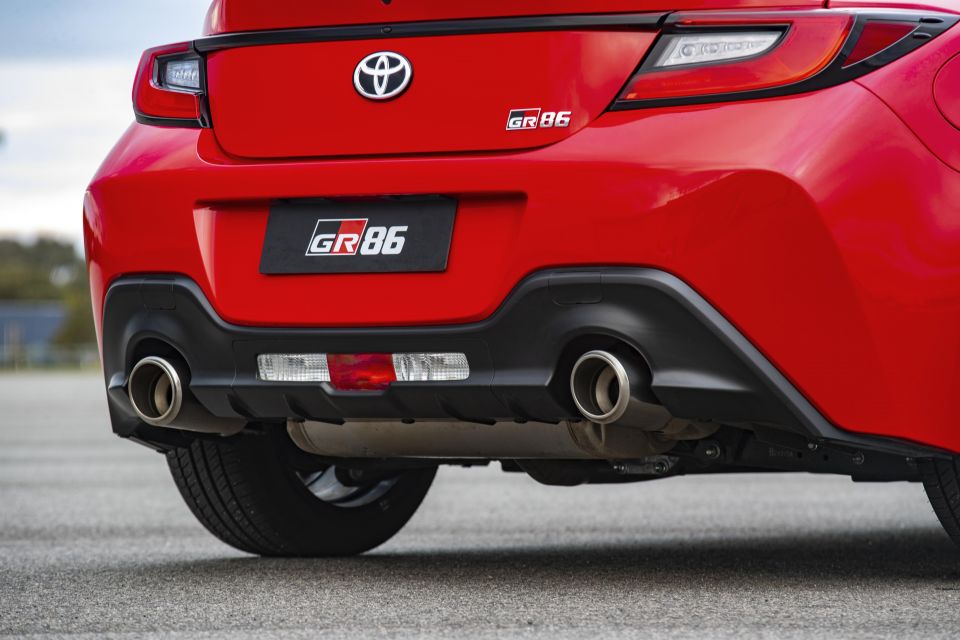
Claimed fuel economy:
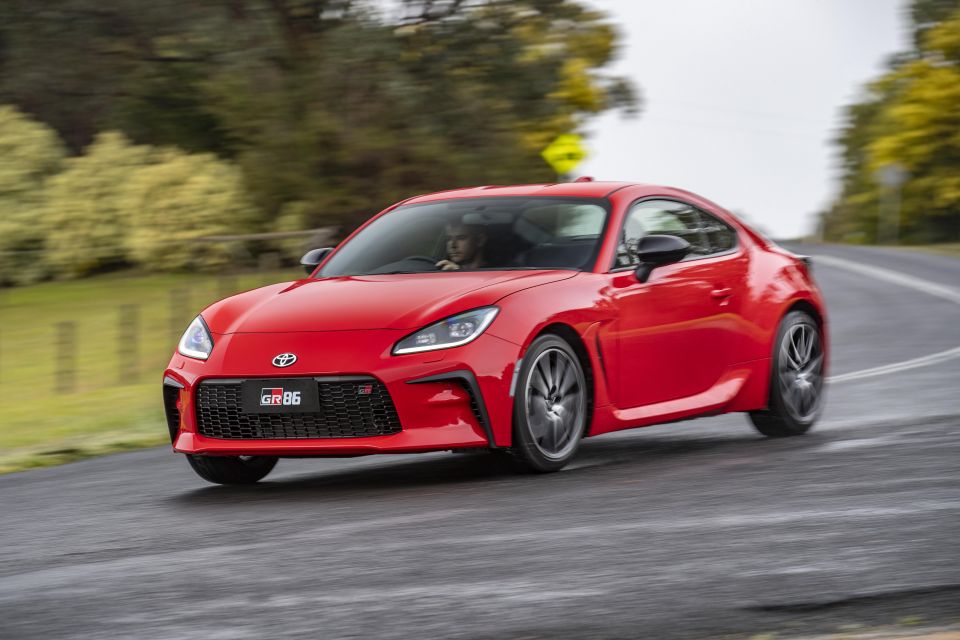
Where expert car reviews meet expert car buying – CarExpert gives you trusted advice, personalised service and real savings on your next new car.
First off we sampled the GTS manual on some quiet country B-roads in and around Phillip Island before heading onto the mainland for some properly spirited GR86 piloting.
Initially, I rode shotgun – the best place to test out the suspension compliance and general ride comfort.
Without driving the old and the new versions back-to-back it’s difficult to compare accurately, but suffice to say the GR86 is naturally skewed towards a sportier, firmer ride. It’s not at all busy in that regard and precisely what I was hoping for.
Better still, there was plenty of opportunity to test bump absorption over roads littered with cracks and obliterated asphalt.
Even at a solid pace, rowing through all the gears, mid-corner bumps refused to unsettle its pin-point accuracy through the line. It’s impressive in that regard and testament to the suspension work as a whole, including smaller things like the new engine mounts designed to reduce vibration.
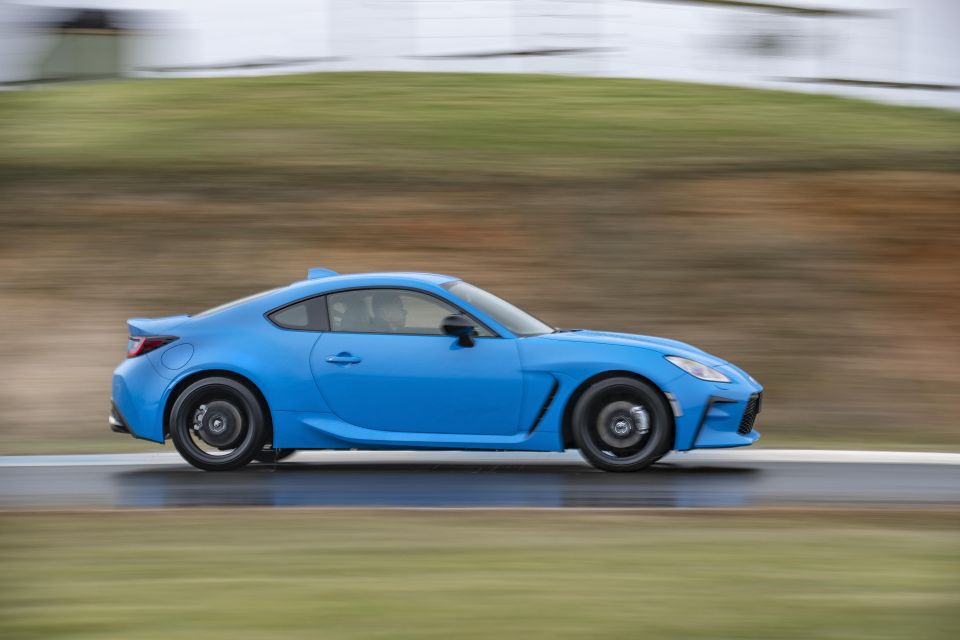
There’s never any tram-lining even when you’re have a proper crack, so the car feels rock solid and confidence inspiring.
It’s got some go despite what some may think of its 6.3-second zero-to-100km/h, which by the way matches the Mk8 VW Golf GTI with dual-clutch auto.
While I was a harsh critic of acceleration pace of the 86, this genuinely feels quick from the get-go and keeps on pulling well into licence-shredding territory. I’m not even sure you need anything quicker than this – it’s simply better than what I was expecting in this regard.
Throttle response is super sharp even in the Normal drive mode, so much so that we had to run some back-to-back tests between it and Sport to recognise the extra oomph delivered, most of which comes on song in the mid-range.
There’s a touch more urgency in the Track setting, but again it’s only just discernible from the other modes. More importantly, it allows drivers to choose between five different VSC settings from full support to all off.

Overall, we like the manual shift action. It’s still notchy (I don’t mind that), with relatively short throws between gear ratios, at least on the road where the driving style is usually less frenetic.
Steering weight feels a tad lighter but it also feels quicker, which again inspires lots of confidence at pace and with quick changes of direction when required. It’s hard not to be impressed, this really is a significant leap forward in so many ways.
Where the GR86 really starts to shine is in the handling department. It’s rock solid at speed through the bends and laps up the quick left-right-left sections with absolute aplomb.
It’s no different when you’re pushing hard on track, it’s just as reassuring. Perhaps even more so given the g-loads.
While the brakes have been upgraded, pedal feel and the initial bite feels a bit numb. You really need to work these stoppers to get the best out of them, though it still needs larger rotors, especially if you’re going to track your GR86.

On track we tasted both the GT automatic and GTS manual, both of which are guaranteed to put a smile on your face, albeit for different reasons.
But the track laps also exposed a few kinks in the armour of the GR86, not the least of which was the automatic transmission.
Mostly the transmission performs admirably, given it not a quick-shifting dual-clutch unit, but where it can waver is in the tighter corners on track at Phillip Island, such as MG, where you’d like to quick shift from fourth down to second, yet it won’t engage the latter – requiring a second pull of the paddle. It’s frustrating to say the least.
The only other grievance was at full tilt down the main straight – shifting from fourth up to fifth and experiencing a noticeable lack of torque in the said gear – to the point where it was better to try and leave it in fourth into turn one (in the auto).
If there was an issue with manual transmission, it only surfaced on track, though not in the same vein. While the six-speed unit feels like a short-throw box on the road, it’s decidedly less so on track.
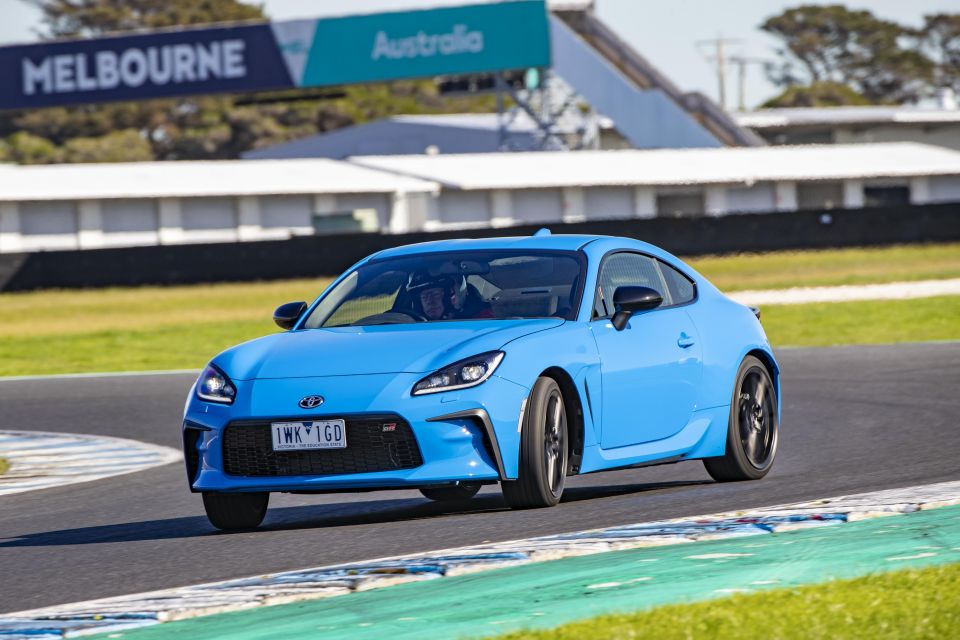
Again, short shifting into MG from fourth down to second gear proved challenging, even for some of the pro drivers. There’s no auto rev-matching in the GR86 – like the GR Yaris and GR Supra – which might have made things easier, but more often than not you would end up with unwieldy engine braking that would slow the car down too much.
Stopping power (or a lack of) also only appeared during the track sessions. Each was only two flying laps before the cars needed to rest to cool the brakes, though the Michelin tyres performed admirably under the same conditions.
During one session, I ran out of brakes coming into turn four; they quickly recovered, but I’d suggest the GR86 could benefit greatly from larger rotors for those owners keen to track their cars.
I recall the previous-gen Peugeot 308 GTi was equipped with brake rotors just under 400mm in size, and that was car that could do countless laps at a tight circuit like Ascari in Spain, without so much as a hint of fade.
Perhaps it’s something Toyota could look to as a dealer upgrade option, or I trust the aftermarket will oblige.
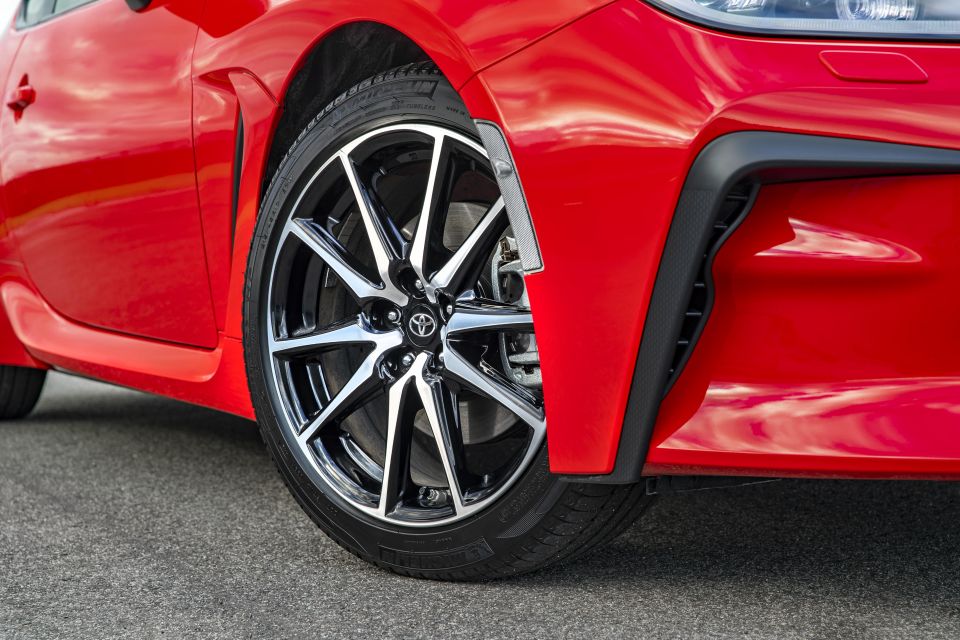
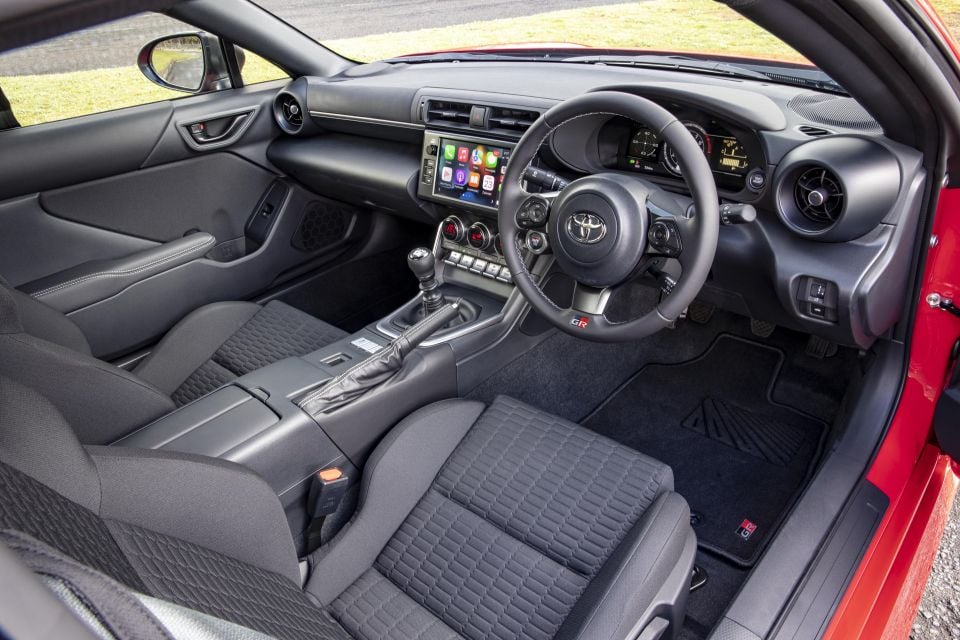
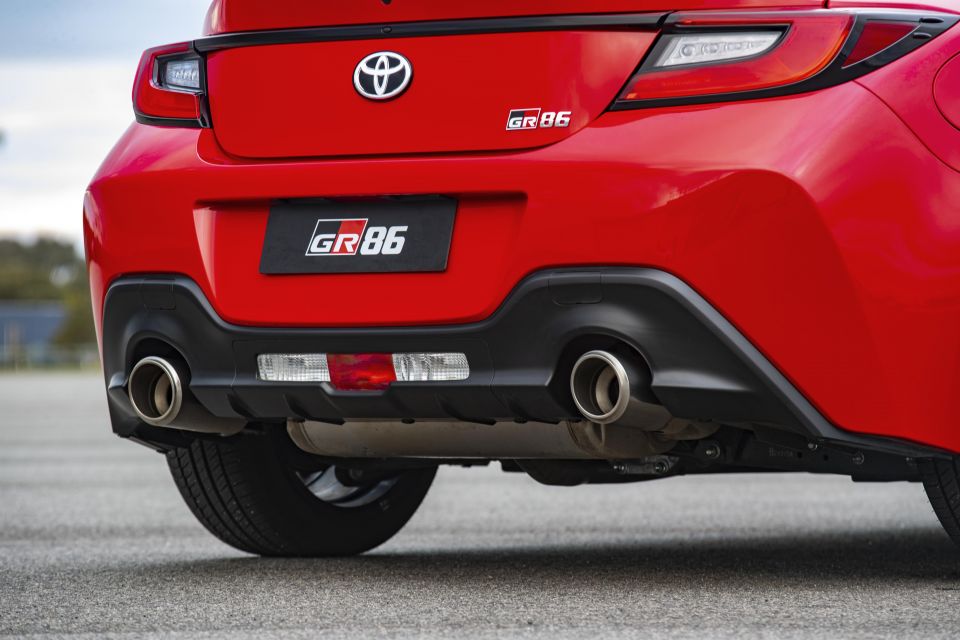
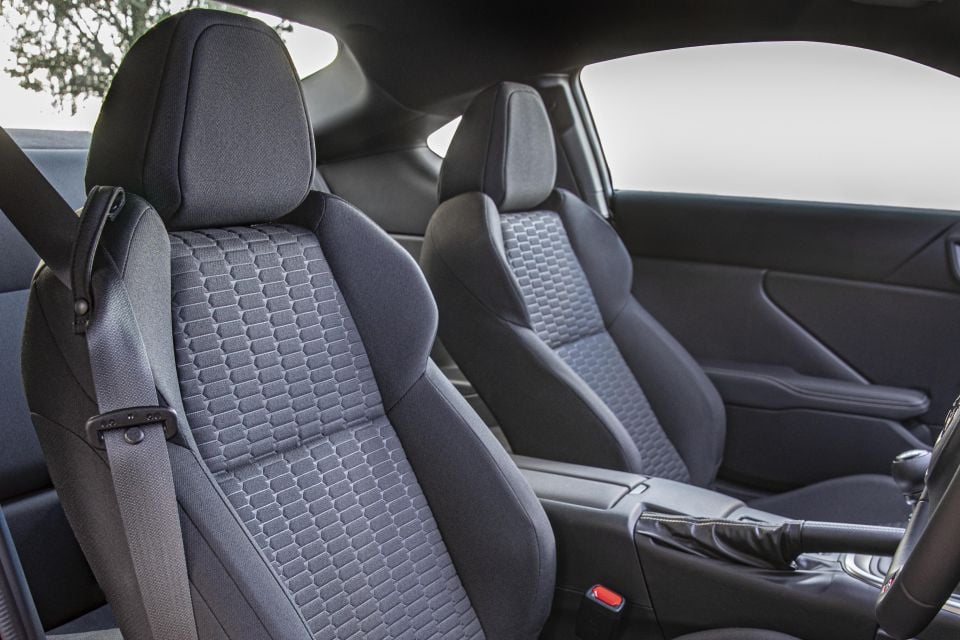
GR86 GT highlights:
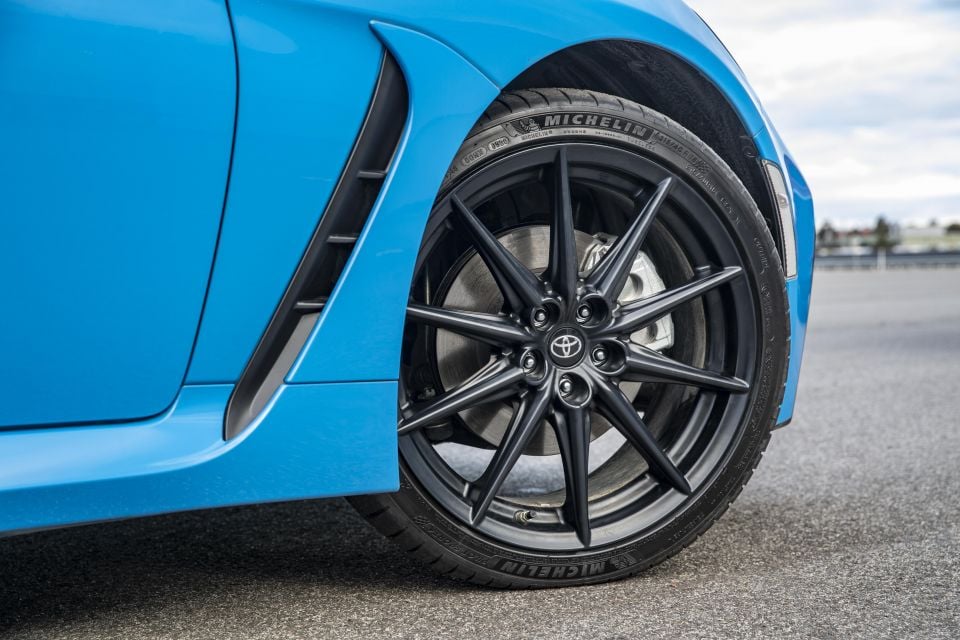
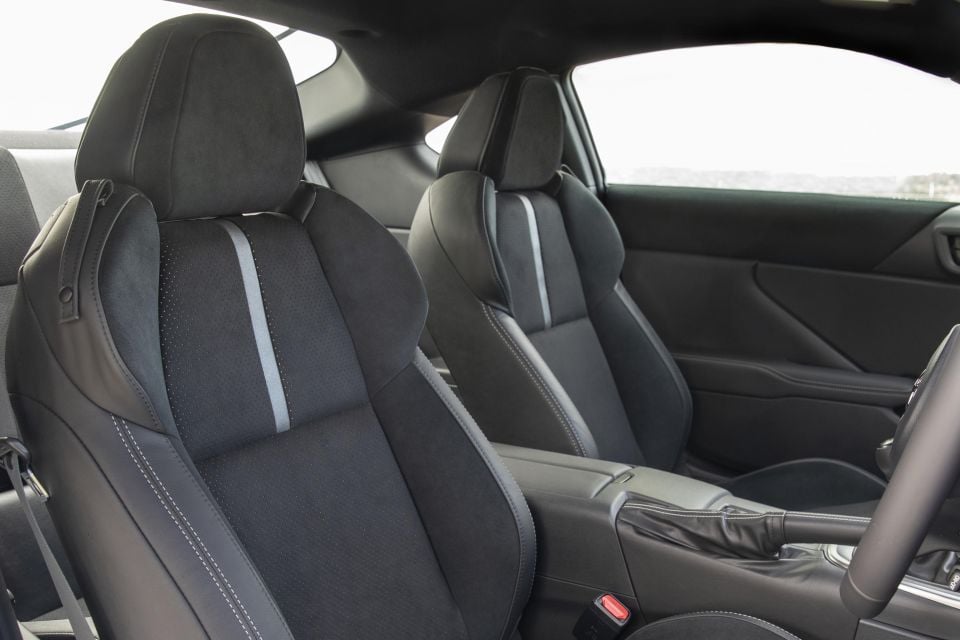
GR86 GTS adds:




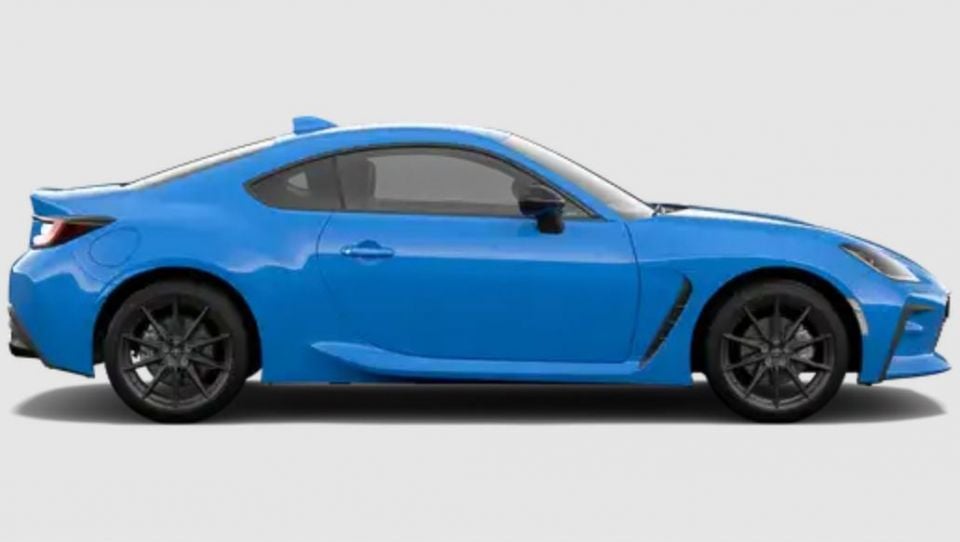

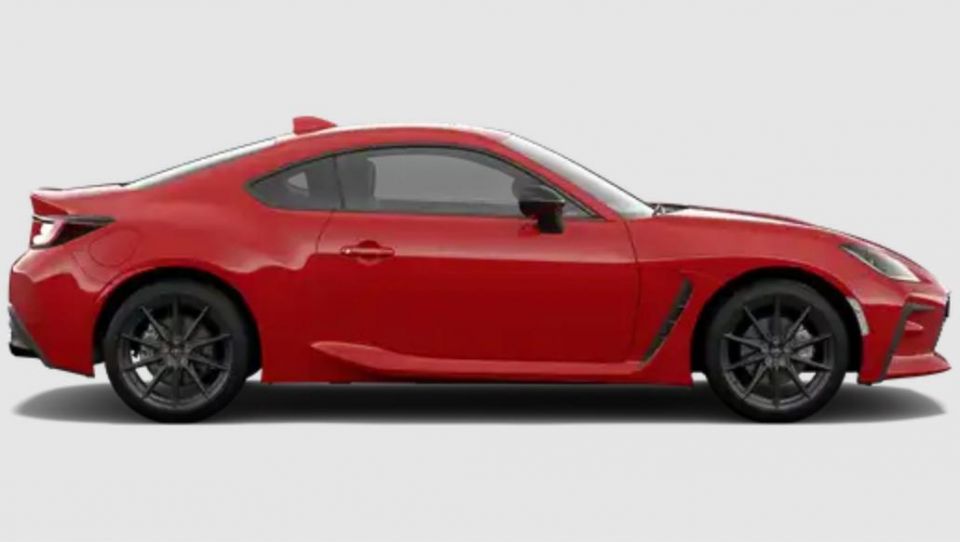
Premium paints cost $550 – i.e. all colours except Storm Black
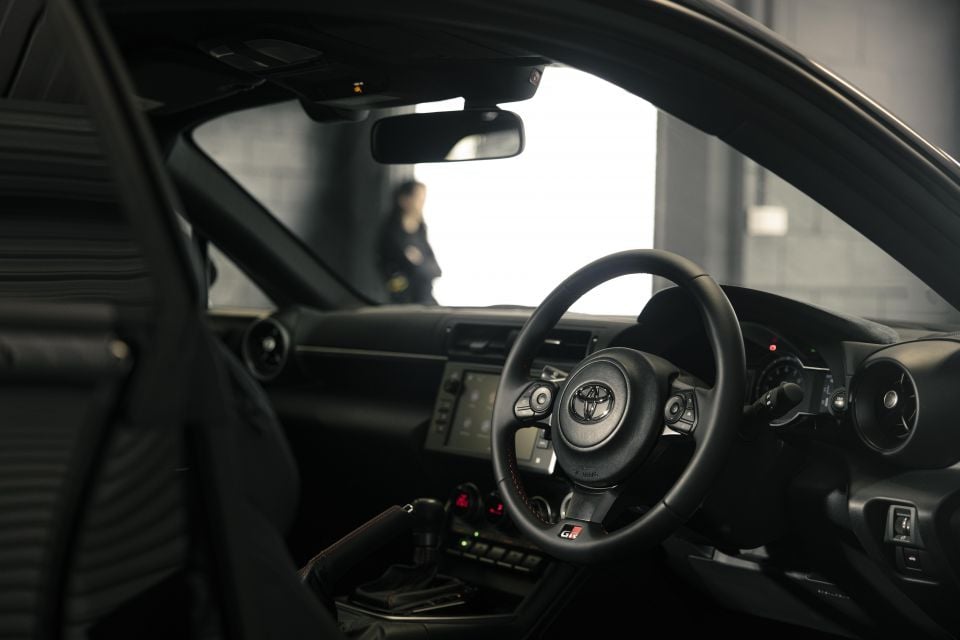
The Toyota GR86 nor its Subaru BRZ twin have been crash tested by ANCAP or Euro NCAP, and therefore are unrated.
Disappointingly, the GR86 GT manual doesn’t feature any active safety or driver assistance systems, however, opting for the GT automatic gets you a more generous safety suite.
Standard safety features (auto) include:
GR86 GTS adds:

The GR86 is covered by Toyota’s five-year, unlimited-kilometre warranty, extending to seven years on the engine and driveline if you stick to the manufacturer’s service schedule within the dealer network.
Service intervals are 12-months or 15,000km – whichever comes first.
Capped-price servicing for the first five years/75,000km costs $280 a pop, which is pretty reasonable.
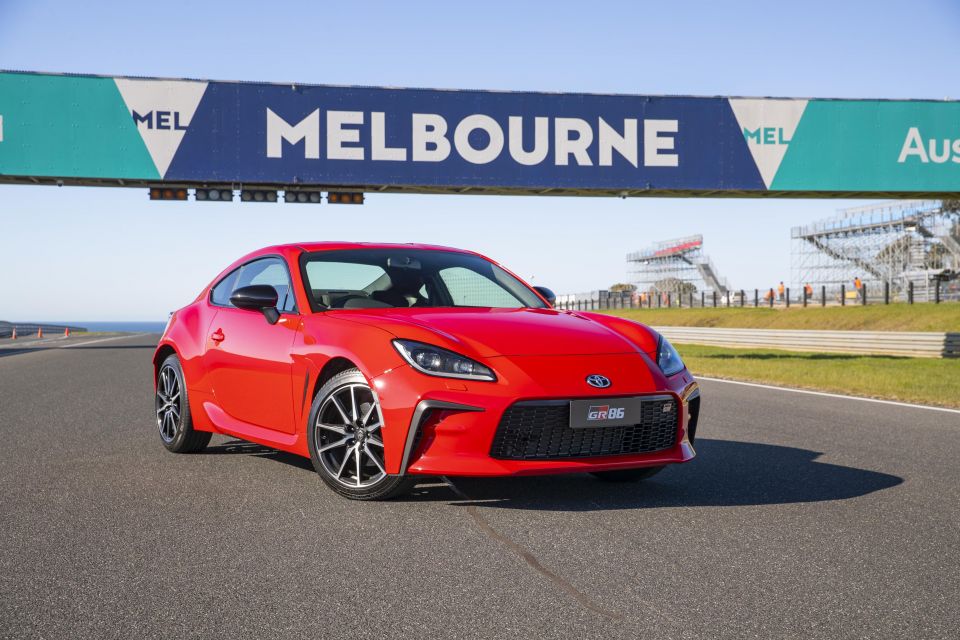
Buy your new car without the stress. It's fast, simple and completely free.

Great service from Travis and team, second time I have used this business would not hesitate to recommend them to anyone
Craig C.
Purchased a Ford Ranger in Sunshine Coast, QLD
CarExpert helped Craig save $7,224 on his Ford Ranger, now let us save you on your next new car.
Get your BEST priceI’m tempted to say the GR86 is the car the original 86 should have been from the outset, such is the improvement on a holistic level.
Toyota has managed to deliver a genuine hard-charging sports car with vastly superior handing and more than enough go to get the heart racing, and they’ve done it without resorting to turbocharging. That’s commendable.
It’s not the sports car bargain it once was, but you get what you pay for as the saying goes – in this case, a lot more than you got with the previous iteration.
The only issue is likely to be one of supply to meet the inevitable demand.
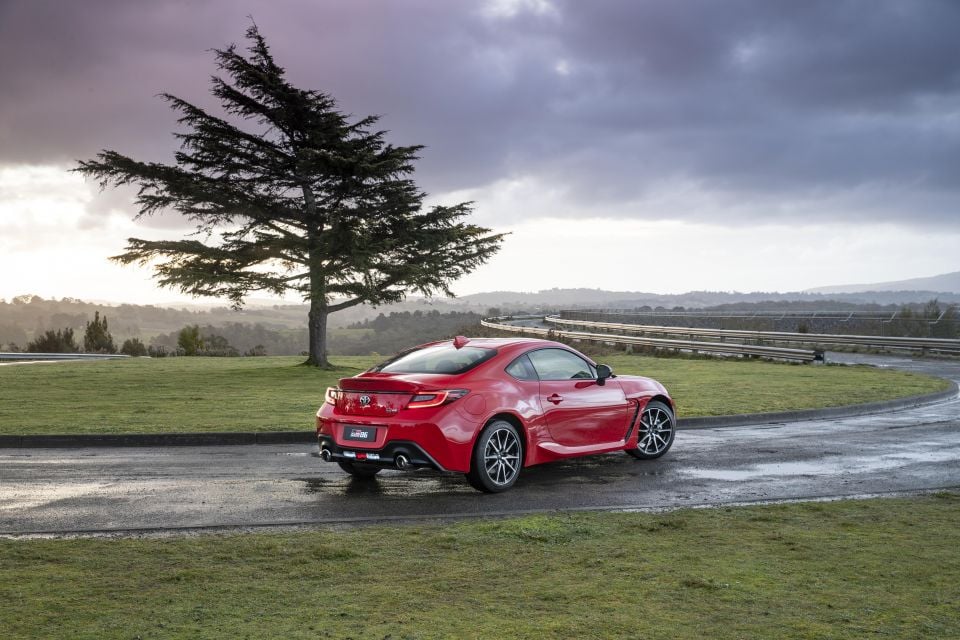
Click the images for the full gallery
MORE: Everything Toyota GR86
Where expert car reviews meet expert car buying – CarExpert gives you trusted advice, personalised service and real savings on your next new car.


Max Davies
5 Days Ago
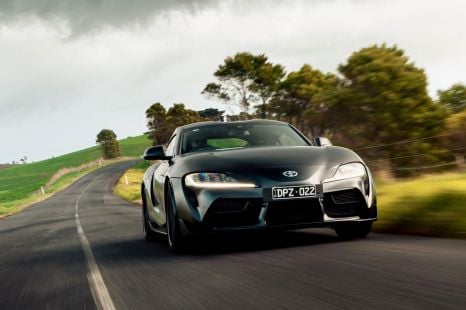

Max Davies
4 Days Ago
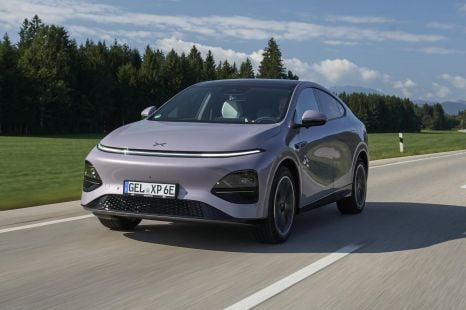

Neil Briscoe
3 Days Ago
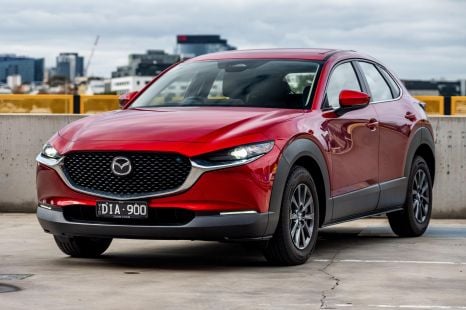

Max Davies
2 Days Ago
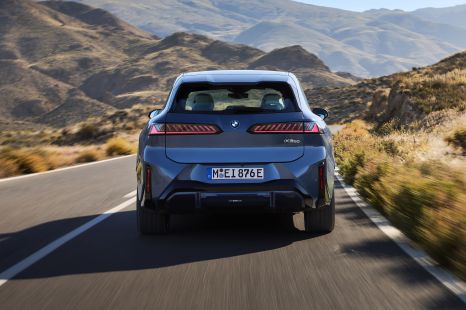

Alborz Fallah
11 Hours Ago


Damion Smy
10 Hours Ago